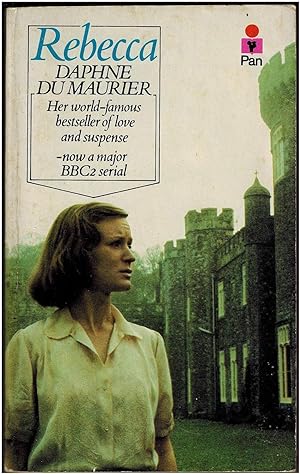
In Complete Stories and Poems of Edgar Allan Poe.

Walking Alone Together: Family Monsters in The Haunting of Hill House. Jackson (Ed.), The Haunting of Hill House (pp. The Haunted House in Women’s Ghost Stories: Gender Space and Modernity 1850–1945. Sex, Jealousy and Gender: Daphne du Maurier’s Rebecca 80 Years On. Sprenghether (Eds.), The (M)other Tongue: Essays in Feminist Psychoanalytic Interpretation (pp. Equivocal Beings: Politics, Gender and Sentimentality in the 1790s.

The Turn of the Screw and Other Short Fiction (R. In Whispers From the Cotton Tree Root: Caribbean Fabulist Fiction. The Mad Woman in the Attic: The Woman Writer and the Nineteenth-Century Literary Imagination. The Captive Wife: Conflict of Housebound Mothers. Daphne Du Maurier: The Secret Life of the Renowned Storyteller. Agoraphobia and an Unhappy Marriage: The Real Horror Behind The Haunting of Hill House. Perils of the Night a Feminist Study of Nineteenth-Century Gothic. Jarvis (Eds.), Reviewing Romanticism (pp.

The Politics of the Gothic Heroine in the 1790s. The house will not let her go once it has her.Īusten, J. Instead of escaping dreams, damage, lies and demons, she brings the darkness of self and soul. In The Haunting of Hill House, Hollywood promise of grand Gothic houses and journeys ending in lovers meeting lure Eleanor, escaping the sideline role as spinster aunt, to an experiment in a weekend party of guests. In Rebecca, for the unnamed second wife haunted by the lingering presence of her glamorous predecessor, the grand home’s romance and security, with the ideal husband, are both promise and the death of that promise in this novel of partying and place, set in the last days of a blind era of indulgence between the wars.

Rebecca rewrites nineteenth-century and popular text and screen romances, exposing their lies of love solving all, marriage as rescue, safety, security, eternity, wrapped in a comfortable home offering inheritance, wealth, glamour, adoration and something glitzy. Two pivotal twentieth-century ghost stories, Daphne du Maurier’s Rebecca and Shirley Jackson’s The Haunting of Hill House, each have protagonists haunted by culturally constructed notions, dreams of romance, in grand Gothic houses, the unstable fabric of which reflect the instability of self and of such insubstantial dreams.


 0 kommentar(er)
0 kommentar(er)
